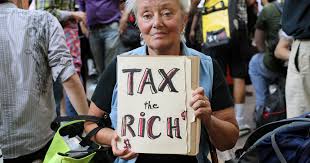In recent years, the chasm between the super wealthy and the rest of society has grown alarmingly wide. This increasing economic inequality poses a significant threat to social stability, economic sustainability, and the overall well-being of our communities. While many factors contribute to this divide, one thing is clear: the super wealthy have both the means and the moral obligation to do more in bridging this gap.
The Extent of Economic Inequality
Economic inequality isn't just about numbers; it's about the lived experiences of people across the socioeconomic spectrum. According to Oxfam, the world's richest 1% have more than twice as much wealth as 6.9 billion people. This disparity manifests in various forms, including access to healthcare, education, and opportunities for social mobility. The COVID-19 pandemic has further exacerbated these differences, with the wealthiest individuals seeing their fortunes increase while millions fell into poverty.
The Role of the Super Wealthy
The super wealthy, by virtue of their vast resources, have a unique position in society. They have the capacity to influence policy, drive innovation, and fund initiatives that can lead to meaningful change. However, with great power comes great responsibility. The question isn't whether they should contribute more, but how they can do so in a way that promotes genuine change to ensure long term global equity and sustainability.
Why the Super Wealthy Need to Do More
-
Moral Responsibility: Wealth often comes from the oppression of others and as such the Super Wealthy have a moral duty to give back to the community. Philanthropy is not just about charity; it's about addressing systemic issues that create and perpetuate inequality. By investing in education, healthcare, and economic opportunities for the underserved, the super wealthy can help create a more just and equitable society.
-
Economic Stability: Extreme inequality can lead to economic instability. When wealth is concentrated in the hands of a few, it limits the purchasing power of the majority, leading to lower economic growth. By redistributing wealth through fair wages, taxes, and social programs, the super wealthy can help create a more balanced economy that benefits everyone.
-
Social Cohesion: Inequality breeds resentment and division. It can lead to social unrest and weaken the fabric of society. By actively working to reduce inequality, the super wealthy can help foster a more cohesive and harmonious society.
How the Super Wealthy Can Make a Difference
-
Philanthropy with a Purpose: Philanthropic efforts should focus on creating long-term, sustainable change. This means funding programs that address the root causes of inequality, such as education, healthcare, and economic empowerment. Initiatives like The Giving Pledge, where billionaires commit to giving away the majority of their wealth, are a step in the right direction but actually doing what they say is a different thing.
-
Fair Business Practices: The never ending pursuit of more wealth by the super wealthy shows a lack of care for the earths finite resources. Encouraging growth for the sake of growth creates a spiralling chasm between the reach and the poor. Corporations owned by the super wealthy should adopt fair labor practices, including paying living wages, offering comprehensive benefits, and ensuring safe working conditions. This not only improves the lives of workers but also strengthens the economy as a whole.
-
Progressive Taxation: Advocating for and accepting progressive taxation can help redistribute wealth more fairly. Higher taxes (or even paying any taxes!) on the wealthy can fund public services and social programs that benefit everyone, particularly the most vulnerable in society.
-
Influencing Policy: The super wealthy have significant political influence. They often use this power to advocate for policies that promote economic benefit to themselves and divert funds from essential services such as universal healthcare, affordable housing, and quality education for all. If political parties were barred from accepting donations from lobby groups (or even just making those donations non deductible) there is absolutely no doubt more decisions would be based on the needs of the populace as a whole as opposed to a select few.
Conclusion
Economic inequality is a complex issue that requires multifaceted solutions. The super wealthy have a critical role to play in this process. By embracing their responsibility and leveraging their resources for the greater good, they can help build a more equitable and sustainable world. It is not just about charity; it is about justice. Now, more than ever, the super wealthy need to do more to ensure that the benefits of prosperity are shared by all.








